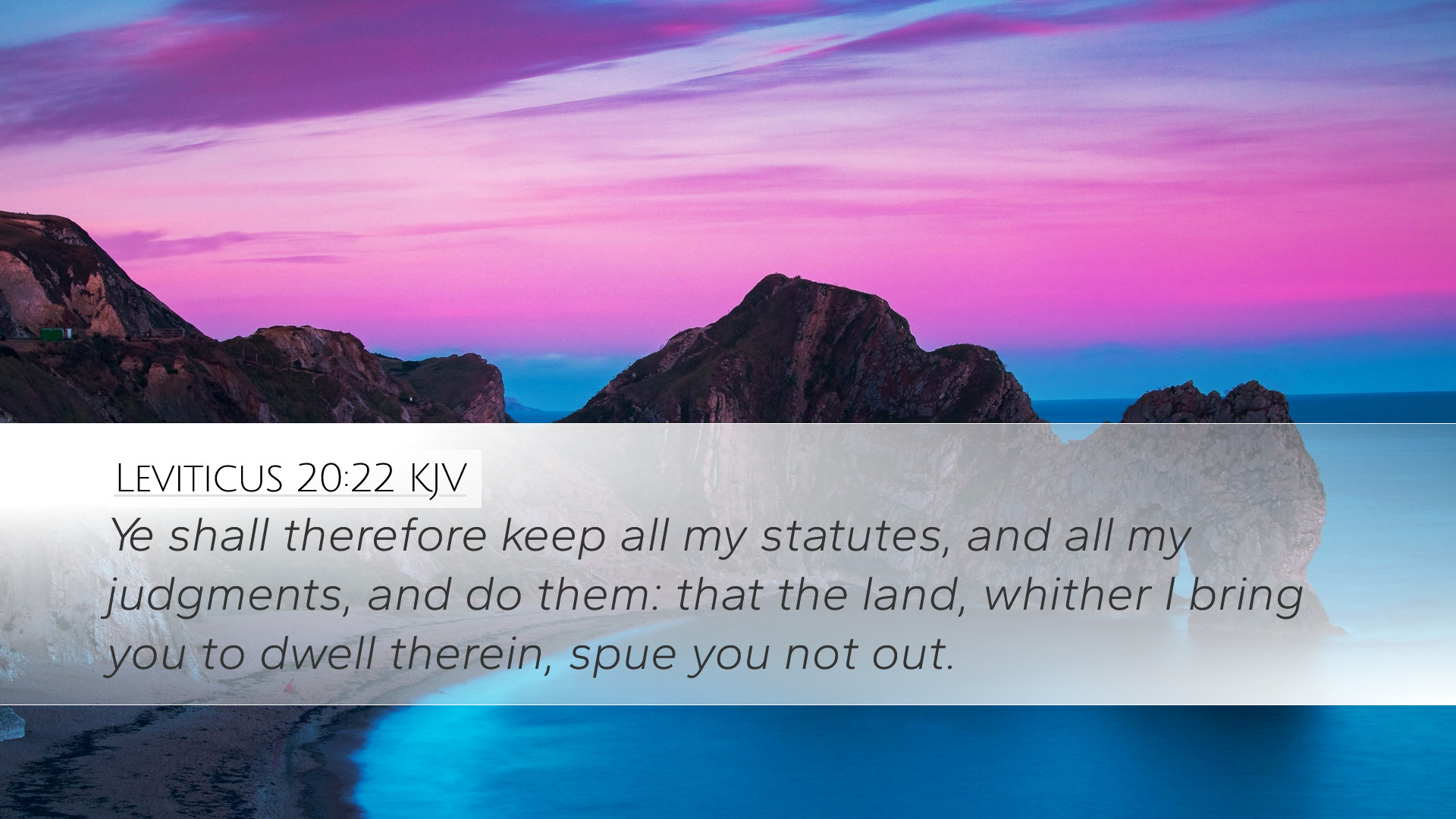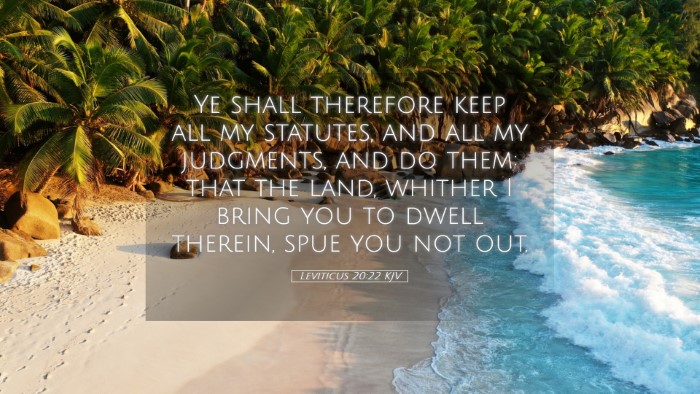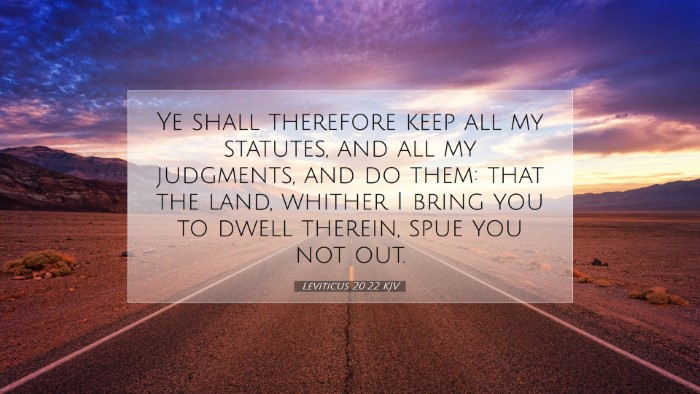Commentary on Leviticus 20:22
Verse: "You shall therefore keep all My statutes and all My judgments, and perform them, that the land where I am bringing you to dwell may not vomit you out."
Introduction
Leviticus 20:22 stands as a crucial verse highlighting the covenantal obligations of Israel before God. This segment of Scripture serves as an admonition to the Israelites regarding their conduct within the Promised Land. The implications of obeying God's statutes are manifold, as seen through insights drawn from esteemed public domain commentaries.
Contextual Framework
The Book of Leviticus primarily addresses holiness, emphasizing the necessity of living according to God's standards. This verse falls within a section discussing several laws and penalties, emphasizing the moral and ritual purity expected of the Israelite community.
- Historical Context: The Israelites were on the verge of entering the land of Canaan, a land described as flowing with milk and honey but also populated by nations with morally corrupt practices.
- Theological Context: This command reflects God's character—holy and just. The statutes given are not arbitrary but stem from His desire for a holy people.
Exegesis of the Text
Upon close examination, several critical components of this verse emerge:
- Obligation to Keep Statutes: The phrase "keep all My statutes" signifies the totality of obedience required. As Matthew Henry points out, obedience is not selective; it encompasses God's entire law.
- The Consequence of Disobedience: The warning "that the land may not vomit you out" implies severe consequences. Adam Clarke expounds on this metaphor as a vivid depiction of divine judgment against unholy living.
- Land as a Theological Symbol: The land represents not just a physical location but a sacred space where obedience leads to blessing, and disobedience leads to exile or judgment, as articulated by Albert Barnes.
The Implications for the Israelites
For the Israelites, the call to adhere to God’s laws was both a privilege and a responsibility. The potential of being cast out of the land underscores the seriousness of their covenant with God. Matthew Henry emphasizes the necessity of inward obedience, indicating that external compliance without internal conviction is insufficient.
Moral and Ethical Dimensions
Moreover, the implications of these statutes reach into the ethical conduct of individuals. The moral law provided boundaries that safeguarded community integrity. Albert Barnes notes that upholding these laws ensured social order and a functioning society rooted in righteousness.
Applications for Today
While these verses were originally directed toward the people of Israel, the underlying principles apply universally to believers today:
- Commitment to God's Standards: Just as the Israelites were called to holiness, modern believers are urged to live according to the teachings of Scripture.
- Understanding Consequences: Every action has consequences, and recognizing the holiness of God should lead to careful living to avoid spiritual or moral downfall.
- Faithfulness in a Secular Land: Believers today live in a society that often rejects biblical norms. The exhortation to maintain one's convictions is as essential now as it was then.
Conclusion
In summary, Leviticus 20:22 not only provided the Israelites with specific guidance regarding their conduct in the land of Canaan but also offers rich theological insights that remain relevant today. The emphasis on obedience, the consequences of moral failure, and the call to live righteously resonate deeply across generations. The reflections from Matthew Henry, Albert Barnes, and Adam Clarke collectively encourage contemporary believers to pursue faithfulness in their covenant relationship with God.


